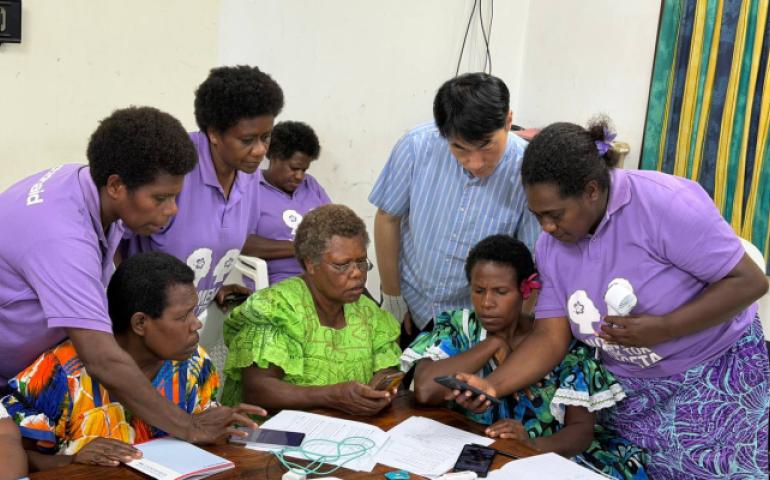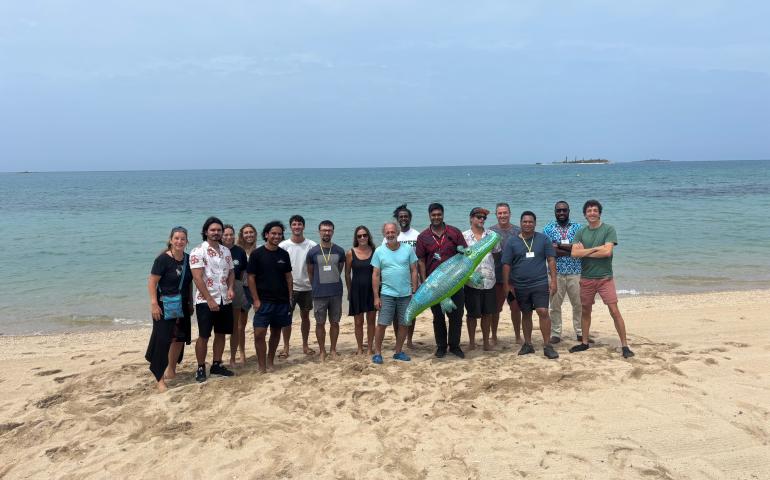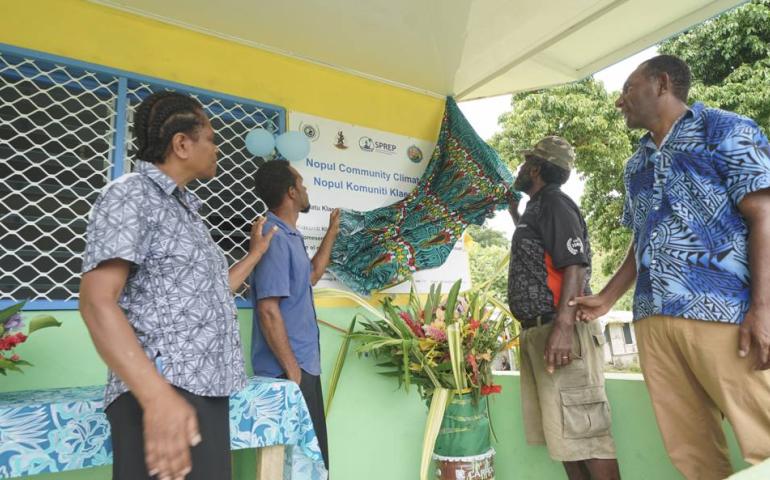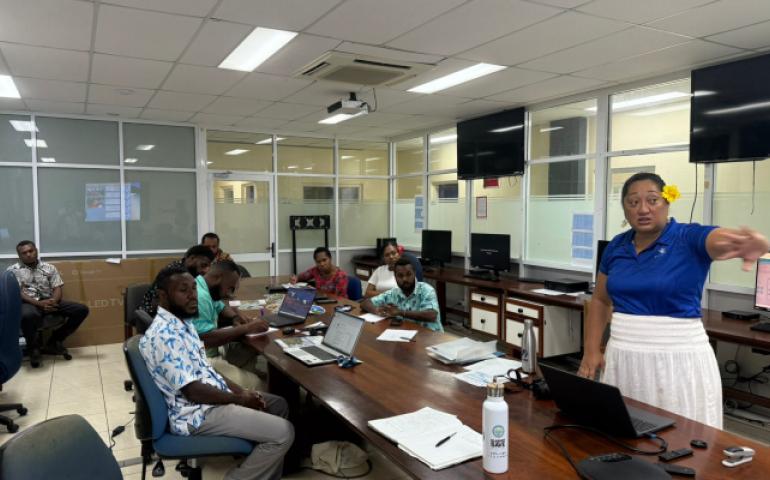The Caribbean and Pacific Join Forces to Boost the Capacity and Capability of Regional Meteorological Centres Through South-South Cooperation
In a move to strengthen climate resilience across Small Island Developing States (SIDS), the Secretariat of the Pacific Regional Environment Programme (SPREP) through its European Union (EU)- funded Intra-ACP Climate Services and Related Applications (ClimSA) project, organised for representatives of the Pacific Regional Climate Centre – Network (RCC-N), consisting of the Bureau of Meteorology – Australia, Pacific Community (SPC), SPREP, and other Pacific Regional Centres at the Fiji Meteorological Service (FMS) to attend a week and a half long meeting with the Caribbean Institute for Meteorology and Hydrology (CIMH) in Barbados.
This critical engagement and partnership aimed to boost the capacity and capability of regional climate, training and instrument centres through South-South collaboration between regional institutions in the Caribbean and the Pacific to address the unique climate challenges faced by Small Island Developing States (SIDS).
The CIMH, established in 1967 as the training and research arm of the Caribbean Meteorological Organisation,has evolved into the region’s premier institution for meteorology, hydrology, and climate services, and hosts their Regional Climate, Training, and Instrument centres. The institute also provides support to the meteorological services in the Caribbean.
Supporting Pacific Communities’ climate resilience through enhanced capacity and capability of the Pacific Meteorological Council and SPREPendorsed Centres in the Pacific such as the Regional Climate, Training and Instrument Centres’ is vital for the safeguarding of Pacific communities, economies, and ecosystems against the mounting threats of climate variability, climate extreme events, and climate change.
Ultimately, building capacity and capability is not just about protection – it’s about enabling Pacific people to thrive sustainably in the face of an uncertain climate future.
“By investing in local expertise, strengthening regional and national institutions, and fostering innovative solutions, we empower Pacific Island communities to better anticipate, prepare for, and respond to climate impacts such as rising sea levels, extreme weather and climate events” said Mr Salesa Nihmei, Director of the new Climate Science & Information Programme at SPREP.
Representatives of the Pacific Regional Climate Centre-Network at the Caribbean Institute for Meteorology and Hydrology
“The CIMH has a long history of supporting the National Meteorological Services of the Caribbean, and through this engagement with the Pacific, we aim to foster South-South collaboration between Regional Climate, Training and Instrument centres in the Caribbean and the Pacific to enhance knowledge exchange and shared learning. We also formalised this partnership agreement through a Memorandum of Understanding between CIMH and SPREP,” Mr. Nihmei added.
The key objectives of this engagement were to strengthen such partnerships, which will include advancing the work of the Pacific Regional Climate Centre – Network, and the Pacific Regional Climate, Training and Instrument Centre at the Fiji Meteorological Service to attain World Meteorlogical Organization designation; gain a deeper understanding of the best practices and methodologies employed in CIMH’s operations including interoperability techniques, scientific research, capacity development and sustainability initiatives; and enhance understanding of the areas of collaboration between CIMH and Pacific Regional Centres and lay a foundation for stronger partnerships.
The Caribbean and Pacific face similar challenges, with both regions being highly vulnerable to tropical cyclones, rising sea levels, droughts, and other climate extremes. By joining forces, they can share knowledge, insights, technology, and practical solutions that are directly relevant to small island and coastal Pacific and Caribbean communities.
South-South cooperation empowers regional ownership. Rather than relying solely on external partners, countries in the Global South can learn from each other’s successes and challenges, building capacity that’s tailored to local realities.
For the Pacific, this partnership will help to enhance forecasting and early warning techniques and systems so that communities can better prepare for disasters; strengthen institutional capacity in areas like climate services, data sharing, application and capacity development, scientific research and risk communication; and foster innovation and cost-effective solutions by pooling expertise and resources across regions facing similar issues.
According to Dr. David Farrell, Principal of the Caribbean Institute for Meteorology and Hydrology, the partnership is a significant step forward, and reflects the Caribbean and Pacific’s shared commitment to a sustainable future.
“By combining our expertise, resources, and innovative approaches, we are building resilient meteorological services that can better protect our communities from climate-related hazards,” Dr. Farrell said.
“Together, we aim to enhance early warning systems, improve climate services, and support informed decision-making across vital sectors. This collaborative effort not only advances regional resilience but also serves as a powerful example of how solidarity among Small Island Developing States can drive meaningful, sustainable change in the face of our changing climate.
“This partnership also equips our regions to better anticipate and respond to extreme weather and climate events, protect vulnerable communities, and support sustainable development across the Pacific. Together, we are laying the foundation for a future where our people and ecosystems can thrive, even in the face of growing climate challenges.”
For media inquiries, please contact Mr. Salesa Nihmei, Director - Climate Science and Information Programme, at [email protected].
Source: https://www.sprep.org/news/the-caribbean-and-pacific-join-forces-to-boost-the-capacity-and-capability-of-regional-meteorological-centres-through-south-south-cooperation
- Log in to post comments




